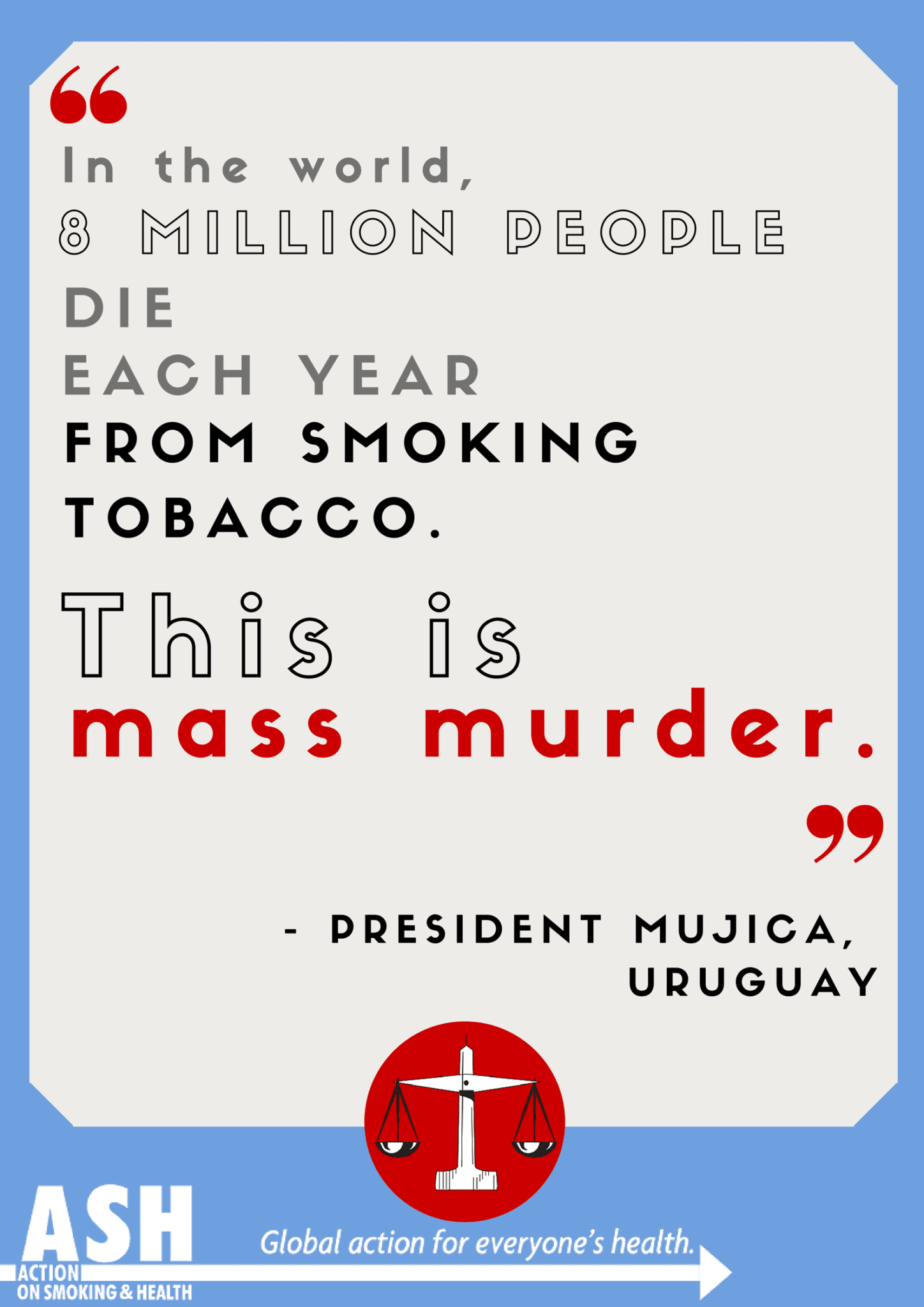Tobacco products kill more people than alcohol, AIDS, car accidents, illegal drugs, murders and suicides combined. Left unchecked, tobacco use will kill 1 billion people this century. As one state Supreme Court recently noted, cigarettes likely constitute “the most dangerous product lawfully sold” to consumers. The lethal consequences of smoking have been known to tobacco corporations for decades, yet they continue these activities, with full knowledge that millions of deaths will be caused by the ordinary use of cigarettes. 
Could tobacco executives and/or corporations be held criminally responsible for these deaths?
The concept has been explored from a legal theory view for years, and may be able to move from theory to practice. There are several options of how to pursue criminal liability.
A Case in a U.S. Court
A prosecutor in a U.S. state could bring a charge against tobacco corporations or their executives. The dangers of smoking have been well document for decades and as the court in U.S. v. Phillip Morris observed the tobacco industry’s own words establish this fact. Yet tobacco corporations continue to sell their deadly products. The action of the manufacture, marketing and sale of these products, coupled with the knowledge of their harms, provides grounds for a charge of manslaughter or criminally negligent homicide.
A Case in a Foreign Country
Each country has their own system of law, so the exact legal options vary from country to country. However, in most countries, tobacco executives could be charged with a crime identical or similar to manslaughter.
Other Legal Options
Charges Under an International Human Rights Mechanism
These charges, for example, a violation of the right to life or right to health, among many others, would be levied against governments for not protecting their citizens. The governments could then in turn enforce or create laws that would affect tobacco corporations and executives, for example, by implementing the Framework Convention on Tobacco Control (FCTC). Some of the international options include the UN system or regional systems like the Inter-American system, the European System, or the African system.
Tobacco corporations have known of the harms of cigarettes for decades. The evidence is clear and convincing that tobacco causes death in unparalleled numbers. Civil litigation, while extremely important, has not been enough to change the behavior of the tobacco industry.
Criminal liability is an important next step to consider.
Donate








